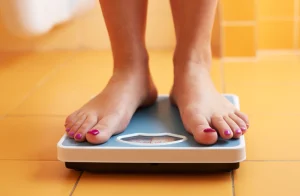Vasopressin might not be a household name, but this tiny hormone plays a huge role in keeping you alive and well. Known as the antidiuretic hormone (ADH), it helps your body hold onto water, maintain blood pressure, and even influences brain function and social behavior.
Understanding Vasopressin
Vasopressin is a peptide hormone produced in the hypothalamus and stored in the posterior pituitary gland. It’s released into the bloodstream when your body senses changes in hydration or blood pressure.
How Vasopressin Works
When your brain detects that your blood is becoming too concentrated or your blood pressure is dropping, it signals the release of this hormone. This hormone acts on the kidneys and blood vessels to restore balance, helping maintain homeostasis.

Primary Functions
Water Retention
Vasopressin’s most well-known job is controlling how much water your kidneys reabsorb. It signals the kidneys to hold onto water, reducing urine output and keeping you hydrated. Without enough vasopressin, you’d lose excessive amounts of water and risk severe dehydration.
Blood Pressure Regulation
It also tightens blood vessels, a process known as vasoconstriction, which helps raise blood pressure when it dips too low. This function is crucial during times of blood loss, dehydration, or shock.
Vasopressin’s Role in Social Behavior
Interestingly, this hormone doesn’t just work in the kidneys, it also affects the brain. Research suggests it plays a role in bonding, trust, and even pair-bonding behaviors. In stressful situations, it helps the body respond effectively, keeping you alert and focused.
Vasopressin in the Brain
This hormone receptors are found in brain regions involved in memory and learning. Some studies suggest that healthy vasopressin signaling may enhance cognitive function and emotional regulation, while imbalances could contribute to anxiety or mood disorders.
Disorders Related to Vasopressin
Too little vasopressin leads to diabetes insipidus, a condition where the body loses too much water through frequent urination and intense thirst. Too much of it, as seen in SIADH, causes water retention, low sodium levels, and can be dangerous if untreated.
Factors That Influence Vasopressin Levels
Vasopressin release is highly sensitive to hydration. Even slight dehydration triggers its release. Stress, pain, and lack of sleep can also increase the levels, as your body tries to maintain balance under pressure.
READ MORE : Foods That Boost Estrogen Levels: A Natural Guide to Hormonal Balance
Clinical Uses
Synthetic vasopressin is used in hospitals to treat low blood pressure, control bleeding during surgery, and manage conditions like diabetes insipidus. It can be life-saving in critical care settings.
Lifestyle Tips
Staying properly hydrated is one of the simplest ways to keep it functioning well. Consuming enough electrolytes, reducing stress, and getting adequate sleep also support hormonal balance.
Misconceptions
People often confuse this hormone with oxytocin, another hormone produced in the hypothalamus. While both can affect bonding and behavior, vasopressin’s main role is water balance and blood pressure regulation, not emotional bonding alone.
Conclusion
Vasopressin may work behind the scenes, but its impact is massive from keeping you hydrated to regulating your blood pressure and even influencing your brain.











